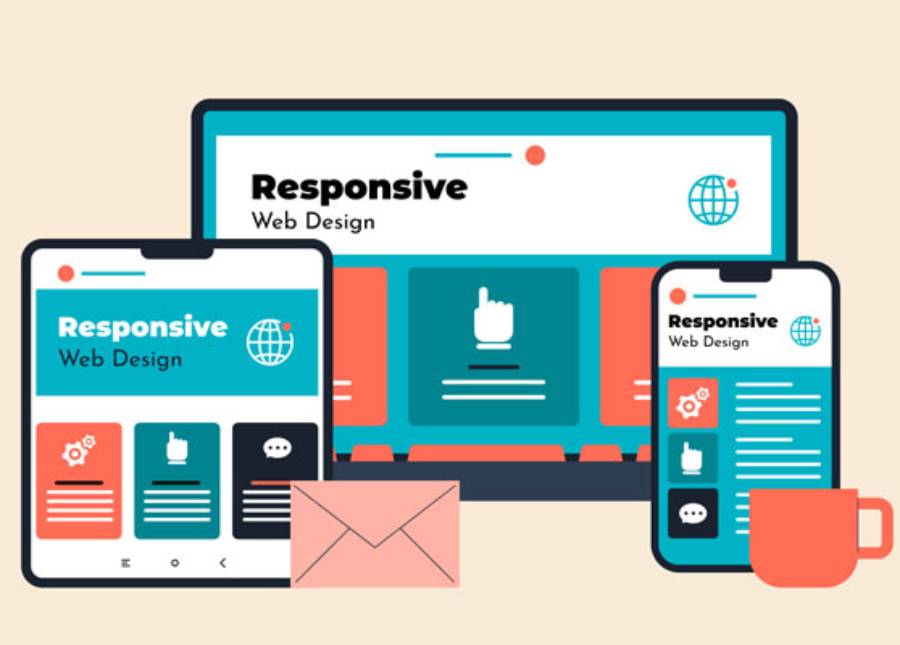Blogs

Website Development Trends: Responsive Design and Beyond
In the ever-evolving landscape of website development, staying ahead of the curve is paramount for businesses aiming to make a lasting digital impression. One of the key trends that has significantly reshaped the way websites are built and experienced is the adoption of responsive design. However, as technology continues to advance, it’s essential to explore the evolution of website development beyond responsive design and the emerging trends that are shaping the digital realm.
Responsive Design: The Foundation of User-Centric Websites
Responsive design has become synonymous with modern web development. This approach ensures that websites adapt seamlessly to various screen sizes and devices, providing an optimal viewing and interaction experience for users. The significance of responsive design cannot be overstated, especially in an era where mobile users constitute a substantial portion of internet traffic.
From a user experience perspective, responsive design enhances accessibility, reduces bounce rates, and positively influences search engine rankings. Google’s mobile-first indexing emphasizes the importance of having a mobile-friendly website, making responsive design a critical aspect of SEO strategy.
The Evolution: Beyond Responsive Design
As technology progresses, new trends emerge, shaping the future of website development. Here are some key directions that go beyond responsive design:
Progressive Web Apps (PWAs):
PWAs combine the best of web and mobile applications, offering a fast and engaging experience. They provide offline functionality, push notifications, and quick loading times, contributing to an immersive user experience.
Voice Search Optimization:
With the rise of virtual assistants and smart devices, voice search has become prevalent. Website developers are now integrating voice search optimization into their strategies to ensure websites are easily discoverable through voice commands.
Artificial Intelligence (AI) Integration:
AI is revolutionizing website personalization, chatbots, and user interactions. Integrating AI into websites enhances user engagement by providing tailored content and automated customer support.
Dark Mode:
Dark mode has gained popularity due to its visual appeal and potential energy-saving benefits for certain devices. Many websites now offer users the option to switch between light and dark modes based on their preferences.
Augmented Reality (AR) and Virtual Reality (VR):
While still in the early stages for widespread adoption, AR and VR are making waves in website development. Industries like e-commerce are exploring immersive experiences, allowing users to visualize products in real-world settings before making a purchase.
The SEO Impact of Responsive Design and Beyond
Search engine algorithms continuously evolve to prioritize user experience. Responsive design positively influences SEO by providing a consistent and user-friendly interface across devices. This not only reduces bounce rates but also contributes to higher rankings on search engine result pages (SERPs).
As websites incorporate emerging trends like PWAs, voice search optimization, and AI integration, they enhance their SEO performance by aligning with the preferences and behaviors of modern users. Websites optimized for voice search, for instance, stand to benefit from the growing number of users relying on virtual assistants for online queries.
The Future of Website Development: Staying Ahead of the Curve
In the fast-paced world of technology, anticipating future trends is crucial for businesses seeking sustained online success. As website development progresses, staying informed about emerging technologies and user preferences will be key to creating digital experiences that captivate and engage audiences.
In conclusion, while responsive design remains a cornerstone of user-centric websites, the landscape of website development is continually evolving. Businesses that embrace trends beyond responsive design, such as PWAs, voice search optimization, AI integration, dark mode, and AR/VR, position themselves to provide innovative and memorable online experiences.



